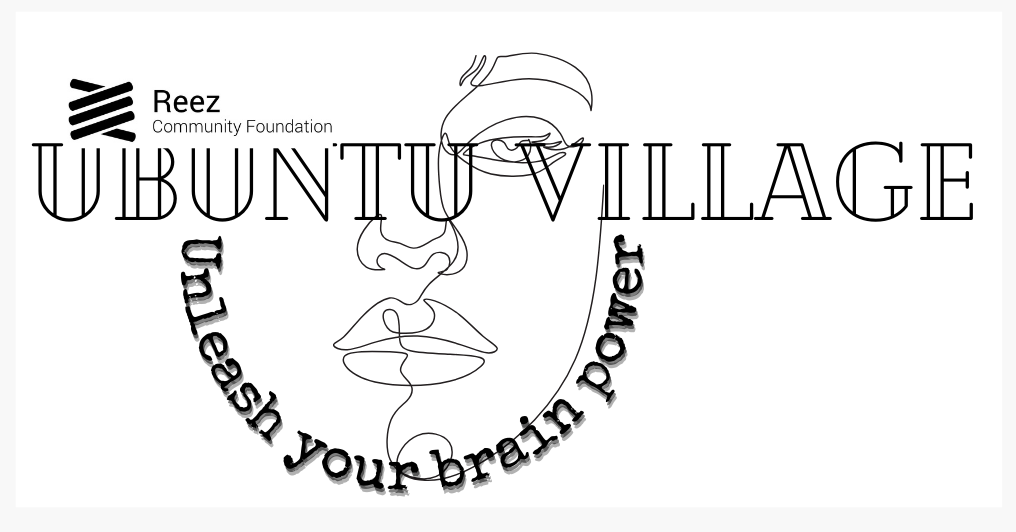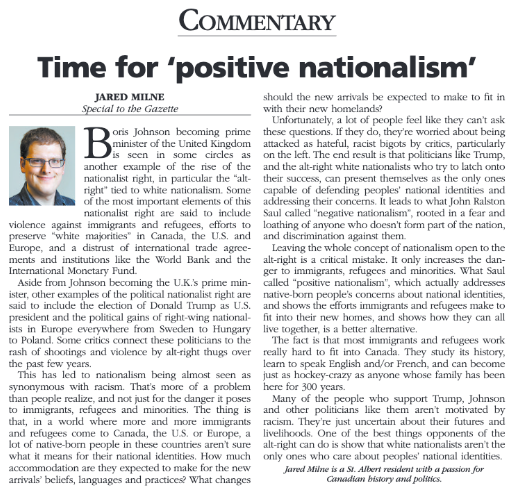I welcome Jared Milne’s commentary published in St. Albert Gazette of August 7, 2019. I commend his efforts to elevate the dialogue on ways to combat the rise of white nationalism through striving for positive nationalism. However, he argued that attacks of racism by the left against those who raise concerns about our changing national identity due to increased immigration creates a vacuum for alt-right movements. I disagree with this assertion for two reasons. First, the backdrop of last weekend alleged shootings and mass killing of mostly Hispanics in the US. One of the gunmen was reportedly inspired by the Christchurch shooting and mass killings in New Zealand on March 15, 2019. Additionally, both gunmen were allegedly inspired by white nationalist ideologies, hence law enforcement officers are reportedly taking the perspective that this was a type of domestic terrorism. My second objection is rooted in an accurate understanding of the nature of racism.
Our entrenched systemic structuring opportunity and assigning value based on the social interpretation of how one another look was designed to unfairly disadvantaging some individuals and communities, while simultaneously unfairly advantageous to others. The resultant human capital wastage is well documented and continues to sap societal strengths. This is racism simpliciter. If considered in the context of the reported ideological radicalization and killings, racism is the elephant in the room. We are now beginning to more fully appreciate why racism is a social determinant of health for all of us. Therefore, the question ought to be why is it difficult to acknowledge racism, particularly by those who are privileged by the systemic structuring and are concerned about the evolution of our national identity. Racism permeates all aspects of our lives. Racism is integral to the conversation and we all ought to be more intentional in engaging with the issues it raises if we have any hope on dismantling it.
So let’s redirect our dialogue towards achieving positive nationalism as conceptualized by John Ralston. In his March 2004 Harper Magazine’s essay, Ralston distinguishes negative and positive nationalism. While “negative nationalism is brash, self-interested, indifferent to or ignorant of the interests of others … often an expression of fear”, positive nationalism embraces “intentional complexity, self-confidence, and openness, …an expression of public good”. As we embrace complexity may we accept the central challenge of the required commitment and skills enhancement needed to transition from the current state of our dialogue. Given our history of racism against various groups through time, the legacy and ongoing racism, I wonder for whose public good do we intend to work as we transition? Surely we cannot continue to give priority to one group at the expense of others? Therefore, is it for ALL or just for those who have always enjoyed priority positioning?
Knowing who you are in a representational sense in specific social contexts is crucial to knowing who others are, how they see you and how you perceive them.
– Dominelli,. L (2018) Anti-RAcist Social Work, p.25
As a society, we have a long way to travel as an expression of our commitment. I recall a number of my social work texts that made references to immigrant and refugees often just covered the experiences of people of African descent and other minorities except for Indigenous Peoples. This is just one way that those who are marginalized amongst us due to how they look understand “immigrant and refugees” often operates as a code that excludes White immigrants and refugees. So even though Milne added minorities to his use of the phrase, the meaning is not lost to a society enmeshed in its differential structuring of opportunities and privileges based on social interpretations of how we look.
I believe a more productive response to those feeling unsafe to talk about their national identity concerns should include elevating the overall dialogue with some ground rules. Firstly, we all need to improve our skills and commitment to achieving the public good of ALL. After all, Ralston did caution that “positive nationalism” is complex and requires skill and commitment. Granted he was talking about taking advantage of the opportunities resulting from the failure of yet another “grand economic theory”: globalization, his suggestion is also appropriate here as well.
Racism is an unacknowledged aspect of our national identity. An identity that included the simultaneous privileging of white people while disadvantaging the collective “black” population. This is true for Canada, the United States, the United Kingdom, France, Spain, Germany, etc. The white nation-states were built on the back of minorities through time with varying forms of oppression. Need I go on?
Let’s continue the dialogue with a realization that it requires commitment and skill. A commitment to taking the necessary conscious efforts. Let’s create safe spaces that include each person accepting the responsibility to improve their skills on the pertinent issues as a prerequisite to having meaningful dialogue on developing intentional positive nationalism.
Rascism is a system of structuring opportunity and assigning value based on the social interpretation of how one looks.
– Jones, Truman et. al (2008). Using “socially assigned race” to probe white adantages in health status. Ethn Dis. 18(4); 496-504.
Ufuoma
————————————————————————————————————

Ufuoma (who-fo-ma) Odebala-Fregene, BA, BSc, BSW, RSW is a socio-legal professional and a founding member and Executive Director of Savanna Skills Corporation trading as Reez Community Foundation. (www.reezcommunity.org). She can be reached on twitter @thrivingmankind

